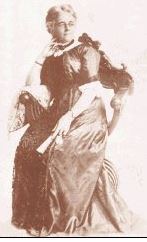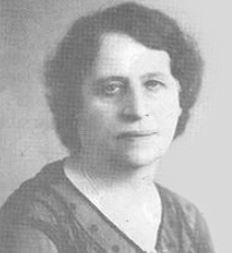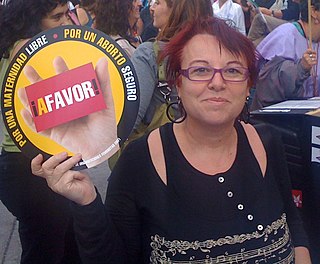Related Research Articles

Marta Lamas Encabo is a Mexican anthropologist and political science professor at the National Autonomous University of Mexico (UNAM), and lecturer at the Instituto Tecnológico Autónomo de México (ITAM). She is one of Mexico's leading feminists and has written many books aimed at reducing discrimination by opening public discourse on feminism, gender, prostitution and abortion. Since 1990, Lamas has edited one of Latin America's most important feminist journals, Debate Feminista. In 2005, she was nominated for a Nobel Peace Prize.
Maria Noelia Bermúdez Valverde is a Costa Rican footballer who plays as a goalkeeper for the Costa Rica women's national team.
Graciela Quan Valenzuela was a Guatemalan lawyer and activist. She campaigned for women's suffrage, writing a draft proposal for Guatemala's enfranchisement law. She was also a social worker, adviser to the President of Guatemala, delegate to the United Nations and the President of the Inter-American Commission of Women.

Ángela Acuña Braun, also known as Ángela Acuña de Chacón,, a Costa Rican lawyer, women's rights pioneer and ambassador, was the first woman to graduate as a lawyer in Central America. Orphaned at the age of 12, she was raised by her maternal aunt and uncle, attending elementary school and beginning high school in Costa Rica. She continued her education in France and England, gaining exposure to the ideas of women’s rights. Returning to Costa Rica in 1912, she published articles in support of women's equality. She attended the boys' lyceum or high school where she passed the bachillerato, a prerequisite for entering law school. She embarked on law studies in 1913, leading to a bachelor's degree in 1916. As women were barred from entering the profession, Acuña immediately presented a reform to the civil code allowing this, which was adopted.

Corina Rodríguez López (1895-1982) was a Costa Rican educator, writer, feminist and occasional sculptor. She was the founder of the Casa del Niño and the Temperance League of Costa Rica, as well as a feminist and suffragette. She was twice exiled for her outspokenness on the treatment of women and children and her political views. She taught school in both Costa Rica and Panama and wrote articles for newspapers and magazines criticizing both national and international political policies. When she returned from exile in Panama, she worked as a housing advocate for poor families in the southern neighborhoods of San José. She was inducted into the Costa Rican Gallery of Women in 2007.

Ana Rosa Chacón (1889–1985) was a Costa Rican educator, health education practitioner, feminist and suffragette. In 1953, in the first election held after women became enfranchised in Costa Rica, Chacón became one of the first three women elected to serve in public office.
Victoria Madrigal Araya was a Costa Rican teacher and suffragette. She was the daughter of José Madrigal and Rosa Araya. Her sister, Vitalia Madrigal, was also a teacher and suffragette. In 1919, Madrigal participated in a teacher's strike led by Ángela Acuña Braun against the administration of President Federico Tinoco Granados for labor law violations. Others who participated were Matilde Carranza, Ana Rosa Chacón, Lilia González, Carmen Lyra, Vitalia Madrigal, Esther De Mezerville, María Ortiz, Teodora Ortiz, Ester Silva and Andrea Venegas. The main issue for teachers was that their salaries were low and that was compounded because they were paid only in vouchers, which were often depreciated and redeemed at half their value. During the protest, the office of La Información, the official government newspaper, was burned down by the teachers.

Marian Le Cappellain (1851–1923) was a British teacher who established one of the first secondary schools available for girls' education in Costa Rica.
Lilia González González (1891–1973) was a Costa Rican educator, and activist. She graduated from the Teacher's Training School in 1907 and began teaching at the Escuela Párvulos directed by Anatolia Zamora de Obregón. She also taught at the Escuela Superior de Niñas No. 4 and the Escuela Graduada, both of which were under the direction of Esther Silva. Beginning in 1912, she worked with Carmen Lyra on a children's magazine called "San Selerín" that they published for several years. She was active in the movement against the labor policies of President Federico Tinoco Granados, which culminated in a 1919 teacher's strike and the teachers setting fire to the government newspaper office, La Información. The strike, led by Ángela Acuña Braun included teachers like Gonzáles and Ana Rosa Chacón, Matilde Carranza, Carmen Lyra, Victoria Madrigal, Vitalia Madrigal, Esther De Mezerville, María Ortiz, Teodora Ortiz, Ester Silva and Andrea Venegas.
Francisca Matilde Carranza Volío better known as Matilde Carranza was born on Jan. 6, 1892 in San José, Costa Rica and baptized on 7 February 1892. Her parents were Francisco Carranza and Petronila Volío. She was one of the leaders of the teacher's strike of 1919 against the labor policies of President Federico Tinoco Granados, which culminated in setting fire to the government newspaper office, La Información. The strike, led by Ángela Acuña Braun included teachers like Ana Rosa Chacón, Lilia González, Carmen Lyra, Victoria Madrigal, Vitalia Madrigal, Esther De Mezerville, María Ortiz, Teodora Ortiz, Ester Silva and Andrea Venegas. In 1920, she went with Lyra and González to Europe to learn the Montessori education model so that it could be implemented in Costa Rica. From the early 1930s, Carranza was furthering her studies in the United States, and continued for almost a decade graduating with a doctorate in philosophy from the University of Wisconsin in 1940. Her graduate thesis, El pueblo visto a través de los Episodios nacionales was published in Costa Rica in 1942. After graduation, she began teaching at Saint Mary-of-the-Woods, Indiana.

Esther de Mezerville Ossaye was a Guatemalan teacher, feminist, suffragette and activist who worked to help women obtain the vote in Costa Rica.
Lidia Fernández Jiménez was a Costa Rican suffragist and feminist active between 1920 and 1940 in the struggle for women's right to vote.

Ana Irma Rivera Lassén is an Afro-Puerto Rican attorney who was the head of the Bar Association of Puerto Rico from 2012–2014. She was the first black woman, and third female, to head the organization. She is a feminist and human rights activist, who is also openly lesbian. She has received many awards and honors for her work in the area of women's rights and human rights, including the Capetillo-Roqué Medal from the Puerto Rican Senate, the Martin Luther King/Arturo Alfonso Schomburg Prize, and the Nilita Vientós Gastón Medal. She is a practicing attorney and serves on the faculty of several universities in Puerto Rico; she currently serves on the Advisory Committee on Access to Justice of the Puerto Rican Judicial Branch.
La Galería de las Mujeres de Costa Rica was founded in March 2002 to recognize the contributions of women to the cultural, political and socio-economic development of Costa Rica. The nominations are overseen and the gallery maintained by the Instituto Nacional de la Mujer (INAMU). Of particular focus is the goal of preserving and protecting the history of women who have broken gender stereotypes and advanced human rights principals.

María Teresa Obregón Zamora (1888-1956) was a teacher, suffragist and politician in Costa Rica. She was part of the group that formed the Asociación Nacional de Educadores (ANDE) and fought for women's enfranchisement. After winning the vote, she helped found the National Liberation Party of Costa Rica and was one of the first three women elected as a Deputy of the Legislative Assembly of Costa Rica. In 2002, Obregón was honored as one of the inaugural group of women inducted into La Galería de las Mujeres de Costa Rica.
María Suárez Toro is a feminist journalist, an activist in defense of human rights, and an educator. She was born in Puerto Rico and has been a resident of San José, Costa Rica for close to 50 years. She was a co-director of the Feminist International Radio Endeavor (FIRE) from 1991 to 2011, of which she is a co-founder. She worked as an educator in literacy in many countries in Central America during the 1970s and 1980s. Since 1998 she has been an Associate Professor of Communication at the University of Denver. Since 2011 she has been a correspondent for Haiti, Puerto Rico, and Costa Rica for the News Service for the Women of Latin America and the Caribbean, and since 2015 has been a coordinator of the Community Center Diving Ambassadors of the South Caribbean Sea, which is dedicated to archeological diving and recovery of the history of the afro-descendant population on the coast of Costa Rica.
Bernarda Vásquez Méndez was a Costa Rican feminist that become the first woman to cast the vote in the country on 30 July 1950 after a struggle begun in 1923 by the Liga Feminista Costarricense, the constitution of 1949 granted Costa Rican women the right to vote.

Montserrat Boix Piqué is a Spanish journalist, considered among the most influential women in her country. In early 2000, she created and developed the concepts of social cyberfeminism, and a year later those of feminist hacktivism. Another of her main areas of work is gender violence and communication. She has also stood out as a defender of the right to communication and citizenship rights for women. Since 1986, she has been a journalist for the Information Services of Televisión Española (TVE), in the international section.

Alicia Miyares Fernández is a Spanish philosopher, feminist, researcher, and women's rights activists. She has served as the spokesperson for several feminist organizations including anti-womb renting No Somos Vasijas and Recav. She has been involved with the efforts to keep abortion legal, writing the manifesto for the 2014 Tren de la Libertad. Miyares Fernández was active in advocating feminist causes ahead of the 2019 Spanish general elections.
Alejandra Mora Mora is a Costa Rican jurist, lawyer, professor, and politician. She has been a human rights activist, especially in the area of women's rights. She served as her country's Minister of Women's Affairs from 2014 to 2018, was president of the National Institute for Woman (INAMU), and director of the women's section of the Ombudsman's Office of Costa Rica.
References
- ↑ Solano Arias, Marta E. (January–June 2014). "A 90 años de la fundación de la Liga Feminista Costarricense: los derechos políticos" (PDF). Revista Derecho Electoral (in Spanish). San José, Costa Rica: Tribunal Supremo de Elecciones República de Costa Rica (17): 357–375. ISSN 1659-2069 . Retrieved 2 August 2015.
- ↑ Camacho De la O, Ana Lorena; Valitutti Chavarría, Gina, eds. (2007). Mujeres destacadas de Costa Rica (in Spanish). San José, Costa Rica: Instituto Nacional de las Mujeres. p. 42. ISBN 978-9968-25-102-0 . Retrieved 16 August 2015.
- ↑ "La batalla de las sufragistas ticas" [The Battle of Tica Suffragists]. La Nación (in Spanish). San José, Costa Rica. 27 July 2014. Archived from the original on 26 July 2019. Retrieved 19 January 2020.